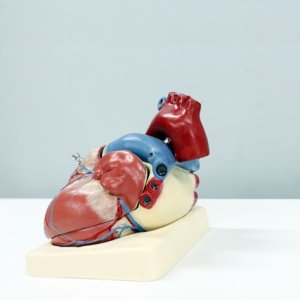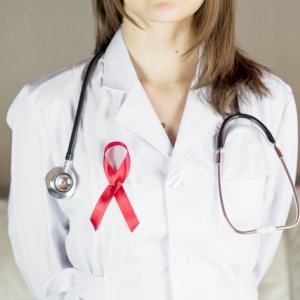Early Diagnosis Essential for Lung Cancer Treatment

STORY INLINE POST
Q: Oncology is an important research area for Roche. How is your research on lung cancer making a difference?
A: It is essential to understand the impact of lung cancer. In 2020, about 7,100 lung cancer patients died, approximately 20 patients per day. At Roche, we highlight the importance of early diagnosis because the earlier cancer is detected, the better the outcome for the patient. It is impressive how fast the treatment of lung cancer has advanced. In 2000, lung cancer was treated as a single disease but it is now known that lung cancer has multiple forms. There are now customized treatments for each type of lung cancer. Roche focuses not just on the treatment of one single disease but in each kind.
It is necessary to avoid stigmatizing the disease. Many link lung cancer with smoking but while smoking is a common cause, it is not the only one. In Mexico, about 34 percent of lung cancer cases are linked to wood smoke. We have to stop stigmatizing the disease and start working to create awareness about the numerous causes of lung cancer.
Q: How is Roche encouraging access to its innovative therapies for this and other diseases?
A: By 2030, Roche aims to double its innovation efforts to reach more patients and decrease the costs of lung cancer. When we talk about costs, we are not referring only to the cost of the treatment but also to the cost of the disease itself. In 2021, around MX$280 million (US$14 million) was invested in research. About 20 percent of Roche’s global revenue is invested in research. We are also bringing innovative early-stage clinical trials to Mexico to benefit patients as soon as possible and are working on immunotherapy and directed therapy. Customized medicine is key in treating lung cancer. We offer a specific solution to almost every type of lung cancer, which is rarely offered in this field.
Q: What collaborations have increased the reach of Roche’s lung cancer solutions in Mexico?
A: By decreasing the cost of treating the disease, it is possible to increase access to different treatments. Early detection, for example, potentially reduces the cost of treatment and increases a patient’s chances of survival and their opportunities to remain productive. We have many collaborations to increase early diagnosis, some with other pharmaceuticals. Precise diagnosis can clarify the specific type of lung cancer affecting a patient and identify the specific treatment required. In doing so, we avoid investing in drugs that might not help the patient.
We also have support programs that help patients pay for treatments.. Roche works hand-in-hand with researchers, doctors, patients and institutions to offer the level of access that we are looking for.
Q: What were the achievements of Roche’s Programa Integral de Cáncer de Pulmón en México (Comprehensive Lung Cancer Program in Mexico)?
A: This program focuses on early diagnosis. We do not have figures for Mexico but in the US, 29 percent of patients are still alive five years after detection. Ten years ago, this rate was only 4 percent. In the past, the life expectancy of a lung cancer patient did not exceed a year. Through programs such as this, we will see something similar to what is happening with breast cancer: patients with this type of cancer can now expect to live longer and better lives.
Q: How does Roche complement its therapies for lung cancer to ensure treatment attachment and an overall better health outcome?
A: We introduced the Roche por ti (Roche for you) support program to improve treatment adherence because we want patients to finish their treatment and experience the benefits we have seen in clinical trials. We offer more than just treatment; we also support patients with tests and imaging studies, among other services. If the treatment is not working on a patient, we can offer molecular diagnostic tests to understand what else can be offered to the patient.
Q: How did the pandemic impact treatment and care provision for cancer and lung cancer in Mexico?
A: The interruption of treatment caused by the pandemic forced 80 percent of cancer patients in Latin America to interrupt their checkups. Diagnostic tests also decreased during this period as the priority was COVID-19. Some patients also avoided hospitals from fear of getting exposed to SARS-CoV-2. The pandemic, however, also led to constant checkups for COVID-19 patients that helped some patients to detect lung cancer in its early stages.
Q: What are Roche’s priorities going forward?
A: The patient has always been Roche’s main priority. We are constantly mapping the needs of patients from the moment they present early symptoms. We also evaluate the obstacles they face along this journey, although the main problem remains the lack of early detection. For that reason, we are focused on helping and collaborating to provide an early diagnosis. We also work to provide access to the best treatments available, promote adherence to treatment and offer other solutions that can help patients deal with this disease.
Roche is a pioneer in medicine and diagnostics R&D. The combined power of pharmaceutical-diagnostic integration under one roof has made Roche the leader in personalized healthcare.








 By Miriam Bello | Senior Journalist and Industry Analyst -
Tue, 08/30/2022 - 08:49
By Miriam Bello | Senior Journalist and Industry Analyst -
Tue, 08/30/2022 - 08:49
















